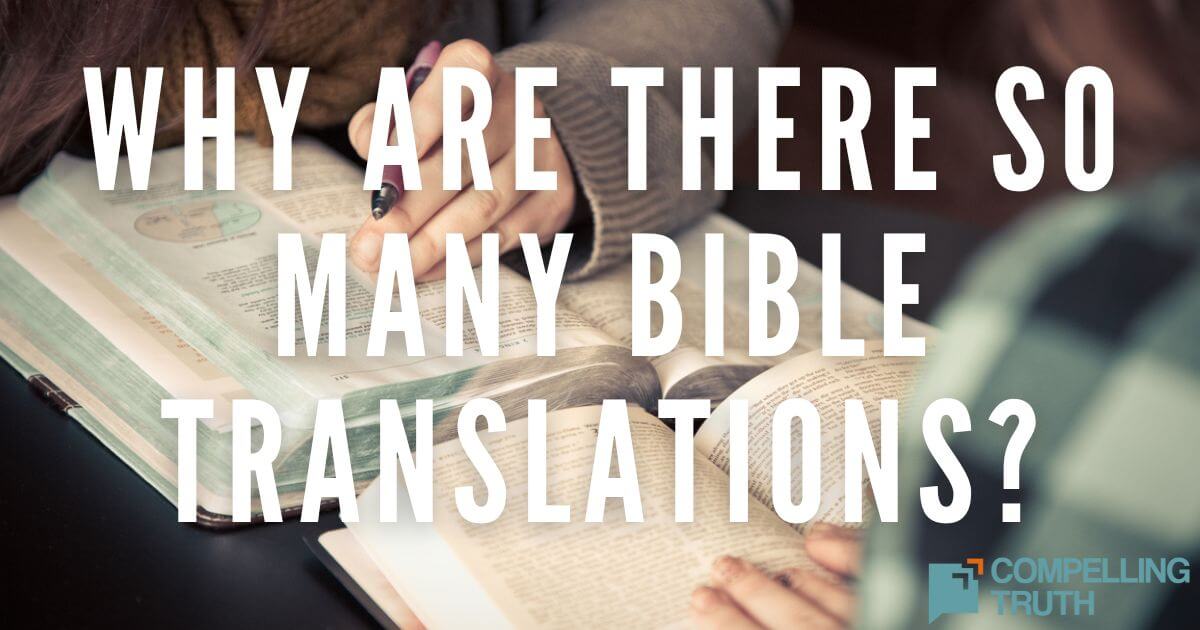There are several reasons behind today's multiple English Bible translations. First and foremost, there are many English translations because of the rapidly changing nature of the English language. The English language has been commonly spoken for centuries, yet most modern English speakers would not even be able to read or understand English that was common five hundred years ago. As a result, older English writings, including the Bible, require modernization to be easily read and understood.
In addition, the English language enjoys many Bible translations because of the easy access to information and publication that has not always been as common in other languages. Many of the world's largest libraries are in English-speaking nations and English is one of the most spoken languages in the world. The sheer number of English speakers and the ability to publish freely in most English-speaking nations has led to numerous projects to translate the most important book in the world, the Bible.
In selecting a Bible translation, it is first important to realize that no English translation is perfect or inspired in the way the original texts of the Bible are (2 Timothy 3:16-17; Hebrews 4:12). In addition, each translation has a particular emphasis in its translation that includes corresponding strengths and weaknesses. One translation may seek to be more literal in translation, yet is more difficult to read in contemporary English. Another translation may be easier to read, yet makes it easy to miss some of the key words found in a more literal translation.
The blessing of multiple translations is the ability to compare more than one version when studying the Bible. In such cases, it is a good idea to include at least one translation that is more literal (King James Version, New King James Version, New American Standard, English Standard Version) and perhaps one that is easier to read (New International Version or New Living Translation). In doing so, you will likely find one translation you prefer as your main Bible for regular reading, while using other translations to help when you study a passage more in depth.
Another suggestion is to consult your local pastor or church leader. These leaders have likely studied the Bible for some time and have additional insights regarding which translations they would recommend.
While access to many Bible translations can be beneficial, the most important thing is to actually read and study the Bible on your own. The temptation with having so many translations is to be overwhelmed at the choices and read none of them. This is not God's desire (Psalm 1). Rather, we are challenged to meditate on God's Word and live out its teachings in our lives (Joshua 1:8).
In addition, the English language enjoys many Bible translations because of the easy access to information and publication that has not always been as common in other languages. Many of the world's largest libraries are in English-speaking nations and English is one of the most spoken languages in the world. The sheer number of English speakers and the ability to publish freely in most English-speaking nations has led to numerous projects to translate the most important book in the world, the Bible.
In selecting a Bible translation, it is first important to realize that no English translation is perfect or inspired in the way the original texts of the Bible are (2 Timothy 3:16-17; Hebrews 4:12). In addition, each translation has a particular emphasis in its translation that includes corresponding strengths and weaknesses. One translation may seek to be more literal in translation, yet is more difficult to read in contemporary English. Another translation may be easier to read, yet makes it easy to miss some of the key words found in a more literal translation.
The blessing of multiple translations is the ability to compare more than one version when studying the Bible. In such cases, it is a good idea to include at least one translation that is more literal (King James Version, New King James Version, New American Standard, English Standard Version) and perhaps one that is easier to read (New International Version or New Living Translation). In doing so, you will likely find one translation you prefer as your main Bible for regular reading, while using other translations to help when you study a passage more in depth.
Another suggestion is to consult your local pastor or church leader. These leaders have likely studied the Bible for some time and have additional insights regarding which translations they would recommend.
While access to many Bible translations can be beneficial, the most important thing is to actually read and study the Bible on your own. The temptation with having so many translations is to be overwhelmed at the choices and read none of them. This is not God's desire (Psalm 1). Rather, we are challenged to meditate on God's Word and live out its teachings in our lives (Joshua 1:8).



